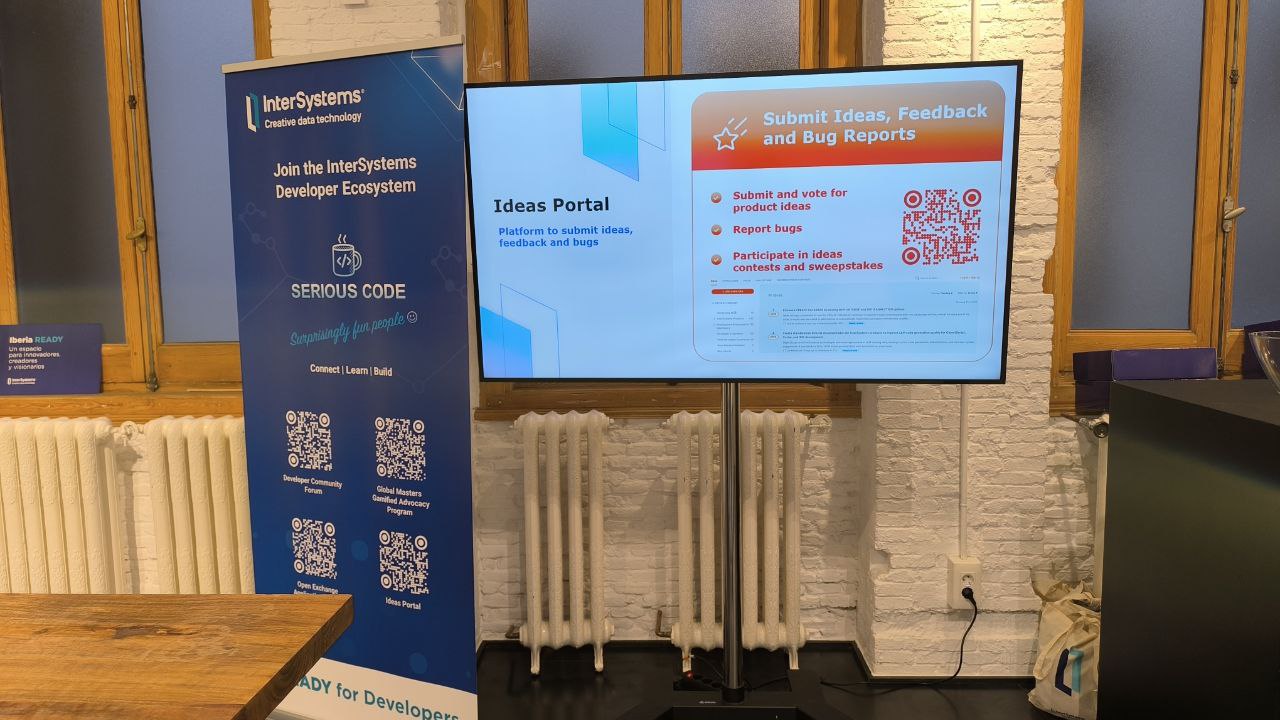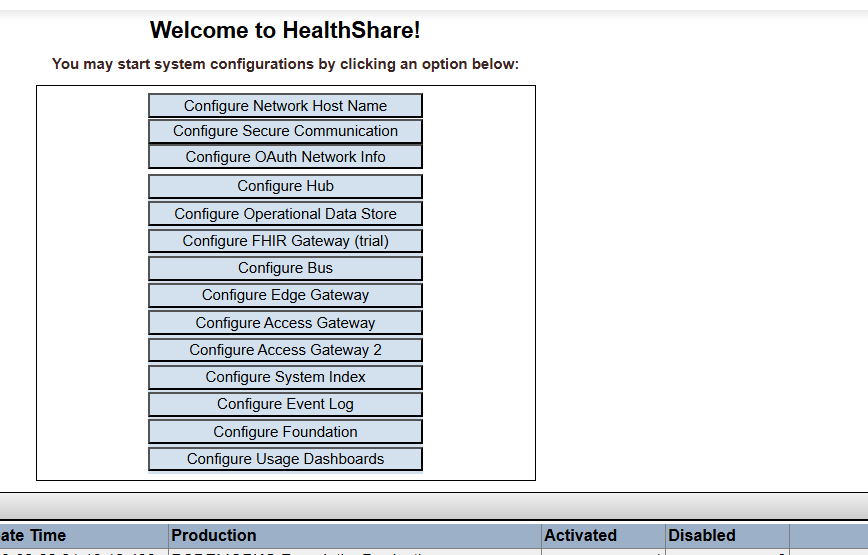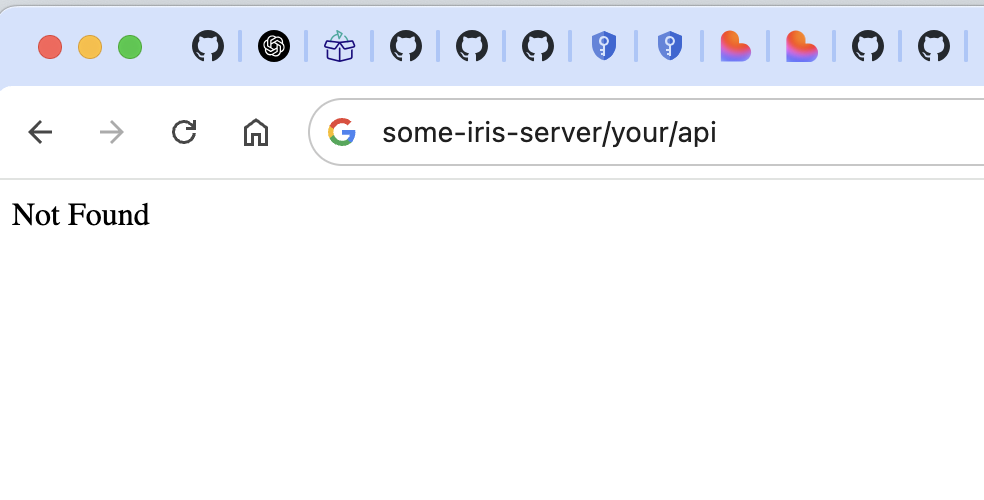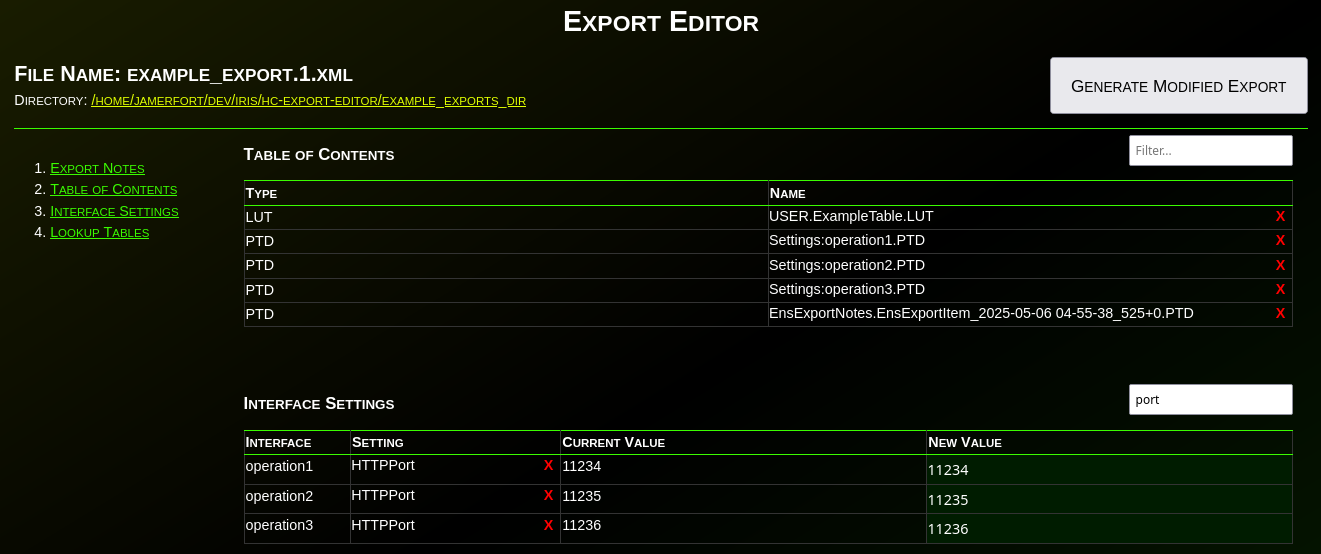With the release of InterSystems IRIS Cloud SQL, we're getting more frequent questions about how to establish secure connections over JDBC and other driver technologies. While we have nice summary and detailed documentation on the driver technologies themselves, our documentation does not go as far to describe individual client tools, such as our personal favourite DBeaver. In this article, we'll describe the steps to create a secure connection from DBeaver to your Cloud SQL deployment.
Hey Developers,
It's time to announce the Top InterSystems Developer Community Authors of 2025 🎉
We are pleased to reward the most active contributors across all regional DC sites (EN, ES, PT, JP, CN, and FR):
- Breakthrough of the Year
- Top Best-Selling Authors
- Top Experts
- Top Opinion Leaders
(1).jpg)
Keywords: IRIS, Agents, Agentic AI, Smart Apps
Motive?
Transformer based LLMs appear to be a pretty good "universal logical–symbolic abstractor". They started to bridge up the previous abyss among human languages and machine languages, which in essence are all logic symbols that could be mapped into the same vector space.
Objective?
Wondering for 3 years we might be able to just use English (etc human natural languages) to do IRIS implementations as well, one day.
Possibly tomorrow all machines, software and apps will be "intelligent" enough to interact with users in any human languages to get
Hi Team,
I am working on an ASTM interface using EnsLib.EDI.ASTM.Service.TCPService.
Environment
InterSystems Ensemble / IRIS (please specify your exact version)
Service class extending:
Class Custom.ASTM.Service.TCPService
Extends EnsLib.EDI.ASTM.Service.TCPService
{
Parameter EOTOPTIONAL = 1;
Parameter ADAPTER = "Custom.EDI.ASTM.Adapter.TCPAdapter"
}
Custom Adapter:
Include EnsEDIASTM
Class Custom.EDI.ASTM.Adapter.TCPAdapter Extends EnsLib.EDI.ASTM.Adapter.TCPAdapter
{
/// Use Carriage Return (ASCII 13) as line terminator
Property Terminators As %String [ InitialExpression = {$C(13)} ];
}
Scenario
I am
Data Collection
This is a step-by-step instruction guide for creating a task to collect data about the InterSystems database and globals therein (as seen in the associated Open Exchange App - find all the associated code there)
UPDATE (Aug 1 2024): Recently I've been asked about the differences between this and the History Monitor functionality. In short, the data collection monitor builds on the history monitor by adding the ability to track growth of individual globals.
Disclaimer: This software is merely for TEST/DEMO purposes.
I'm happy to share that I was invited to present on the Developer Ecosystem and how it helps everyone become better programmers at the meetup during Iberia READY 2026. Thus, I had a chance to participate in this great event. And you have a chance to see how it went on, because as usual, I will share photos and impressions!
When I arrived, the first thing I saw was the Developer Zone and my presentation about the Ecosystem 🤩

The 2018.1.12 maintenance releases of InterSystems Caché®, InterSystems Ensemble®, and HealthShare® Health Connect are now Generally Available (GA).
Please share your feedback through the Ideas Portal using the category Post-Release Feedback so we can build a better product together.
Documentation
You can find the detailed change lists & upgrade checklists on this page:
Early Access Programs (EAPs)
There are many EAPs available now. Check out this page and register to those you are interested.
How to
In the modern healthcare landscape, finding clinically similar patients often feels like looking for a needle in a haystack. Traditional keyword searches often fail because medical language is highly nuanced; a search for "Heart Failure" might miss a record containing "Congestive Cardiac Failure."
I am excited to share iris-medmatch, an AI-powered patient matching engine built on InterSystems IRIS for Health. By leveraging Vector Search, this tool understands clinical intent rather than just matching literal strings.
## The Core Innovation: Semantic Clinical Search
`iris-medmatch` bridges the
Hi Community!
We’re excited to announce the launch of a new, hands-on training program:
🧑💻 Developing FHIR Applications Using Python 🧑💻

This cohort-based course takes developers from FHIR fundamentals to advanced, real-world healthcare interoperability solutions, with deeper, more practical coverage than typical industry offerings and a strong focus on production-ready skills using InterSystems technology.
Hello,
First of all thanks for reading this question.
We are migrating our old HealthShare instance to the newest version.
We need to export all the Tasks.
We have tested:

You’ve seen how tools like Lovable are shaking up web development. People are spinning up entire apps just by talking to an AI, almost like pair‑programming on steroids.
Now imagine bringing that same “vibe coding” experience into healthcare. know, it sounds crazy. Healthcare is complex, full of regulations, and usually gives us a headache just thinking about the interoperability rules.
That’s exactly the space where withLove lives: an AI‑Native, Low‑Code platform built entirely on InterSystems IRIS for Health.
And no, this is not “one more chatbot” that spits out half‑broken code for you to
Hi Developers!
Recently we are getting a lot of requests on how to become an active and helpful member of the InterSystems Developer Community.
The terms are very simple:
Introduction
InterSystems IRIS allows you to build REST APIs using ObjectScript classes and the %CSP.REST framework. This enables the development of modern services to expose data for web apps, mobile apps, or system integrations.
In this article, you'll learn how to create a basic REST API in InterSystems IRIS, including:
- A persistent data class
- A REST class with
GETandPOSTmethods - A web application to expose the API
-
A full demonstration using Docker
I need to reproduce a table (in fact a view, but let's start with a simple table 😊) in IRIS as the currently used in Oracle.
I need to expose/project one column to JDBC as CLOB, in my class I have the corresponding property defined as:
Property GlobStream As %Stream.GlobalCharacter;
In JDBC this column is projected as LONGVARCHAR, this is compliant with the documentation but I need to project it as CLOB.
In addition, I'm no expert in JDBC but wit seems that LONGVARCHAR has a Maximum Length 32,700 characters in JDBC, not quite enough for an arbitrary stream.
Is it possible to project a %Stream to
using intersystemsdc/iris-ml-community:latest I failed with
Error: Invalid Community Edition license, may have exceeded core limit.
Shutting down the system : $zu(56,2)= 0Starting IRIS
What is the actual valid version with ML ??
There are always those who say that their child looks more like their mother or their father. How about using math and Artificial Intelligence to be sure? The facial-matching application can answer you.
See these results:
- Upload Father, Child and Mother photos:

The InterSystems Ready 2026 Conference is approaching fast — it's a great time to prepare and check your knowledge before attempting one of the Certification exams onsite .
InterSystems certifications aren't easy: you need to practice with questions aligned to the real exam objectives.
exam-prep.es is a free platform built for exactly that: practice, identify weak spots, and show up better prepared.
What you'll find
* 1,200+ practice questions aligned with official certification objectives
* Detailed explanations with links to InterSystems documentation
* Study material covering each exam's
I have a persistent class (GetOrgUpdatesResponse) that has a property which is a list of another persistent class (Organization).
What would be the best way to cascade deletes so that on deletion of a parent row each object in the list property is then also deleted?
I have included a sample of my classes here for clarity
Class Integration.ISIS.BO.SyncOrg.Custom.GetOrgUpdatesResponse Extends (%Persistent, Ens.Response)
{
Property Organizations As list Of Organization;// Cascade DeletionProperty NextUpdateBatchID As%String;Property ResultStatus As%String;
}Where Organization is
Hello everyone,
I’m looking to implement Continuous Training (CT) as part of an MLOps strategy for some data science projects in IRIS. I want to automate the full cycle:
- Monitoring model performance & accuracy degradation.
- Retraining models automatically.
- Validating and updating production models.
I’ve looked into IntegratedML, but it seems more focused on the SQL interface for training (AutoML). Even with the new Custom Models (beta), which allows for more flexibility with Python, it doesn't seem to provide the "Continuous" orchestration out of the box.
I’d like to know:

I have installed personal community but still can't see the configure personal community option here. this is linux
Update (Feb 22): The migration has been successfully completed. You may still experience some temporary instability. If you notice any issues, please report them via DC GitHub.
Hi Developers!
Please note that the Developer Community will undergo scheduled maintenance on February 21–22, 2026.
.png)
Hi everyone,
I am currently integrating a Sysmex analyzer with InterSystems Ensemble/IRIS using a Moxa NPort 5110. I have successfully verified the physical and serial layers, but I am facing two specific issues: a protocol sync error and a persistent TCP connection state.
Environment:
Interface: ASTM.
Gateway: Moxa NPort 5110 (TCP Client Mode).
Server: Ensemble Business Service (EnsLib.ASTM.Service.TCPService).
Port: xxxx.
Current Status & Observations:
Serial Layer: Verified. The Moxa "Async Monitor" shows RxCnt increasing when the instrument sends data. Hardware pins (DSR/CTS) are ON.
TCP
Hi developers!
Observing the avalanche of AI-driven and vibe-coding developer tools that have been appearing lately almost every month with more and more exciting dev features, I was puzzled whether it is possible to leverage it with InterSystems IRIS. At least to build a frontend. And the answer - yes! At least with the approach I followed.
Here is my recipe to prompt the UI vs InterSystems IRIS Backend:
- Have the REST API on the IRIS side, which reflects some Open API (swagger) spec.
- Generate the UI with any vibe-coding tool (e.g., Lovable) and point the UI to the REST API endpoint.
- Profit!
Here is the result of my own exercise - a 100% prompted UI vs IRIS REST API that allows to list, create, update delete entries of a persistent class (Open Exchange,frontend source, video):
What is the recipe in detail?
Hi developers. Just want to share with you a finding that might save you a few important minutes of your developer life with InterSystems IRIS.

But!
It should work; you deployed the REST API correctly, and everything is just in place.
What can go wrong?
If one of your packages on OEX receives a review, you get notified by OEX only of YOUR own package.
The rating reflects the experience of the reviewer with the status found at the time of review.
It is kind of a snapshot and might have changed meanwhile.
Reviews by other members of the community are marked by * in the last column.
I also placed a bunch of Pull Requests on GitHub when I found a problem I could fix.
Some were accepted and merged, and some were just ignored.
So if you made a major change and expect a changed review, just let me know.
| # | Package | Review | Stars | IPM | Docker | * |
|---|---|---|---|---|---|---|
| 1 | iris-medmatch | a Great |
Hi Community!
Welcome to Issue #26 of the InterSystems Ideas newsletter! Let's look at the latest news from the Ideas Portal, such as:
✓ General Statistics
✓ Recently implemented ideas by InterSystems
✓ Recently implemented ideas by Developer Community members
(1).png)
Introduction
The standard %Net.HttpRequest library in InterSystems IRIS is powerful and comprehensive, but it can be verbose for simple operations. Writing an HTTP request often requires several lines of code to instantiate the class, configure the server, the port, HTTPS, add headers, and finally send the request.
When testing in the terminal, this configuration quickly becomes too heavy, and usually ends up with the creation of temporary methods...
FastHTTP was designed to address this need. This utility class provides a fluent and concise interface to perform HTTP calls in a single line, while automatically handling the underlying complexity (SSL/TLS, URL parsing, JSON encoding, headers, etc.).

Have you ever needed to change an IP or port before deploying an interface to production? Needed to remove items from an export? What about modifying the value(s) in a lookup table before deploying? Have you wanted to disable an interface before deploying? What about adding a comment, category, or alert setting to an interface before deploying to production?
If you’ve ever needed to make any changes to an interface or lookup table before deploying to production, then Export Editor is for you!
Export Editoris a Python/WSGI web application that provides a method for editing exports before
Hi Developers,
We are happy to announce the first InterSystems online programming contest of the year:
🏆 InterSystems Full Stack Contest 🏆
Duration: February 2 - March 1, 2026
Prize pool: $12,000
.jpg)


